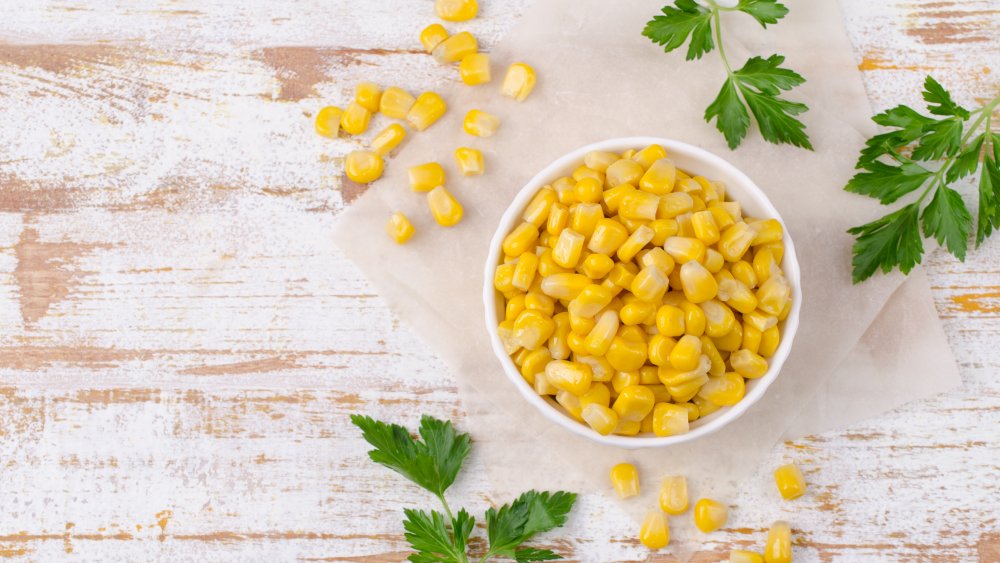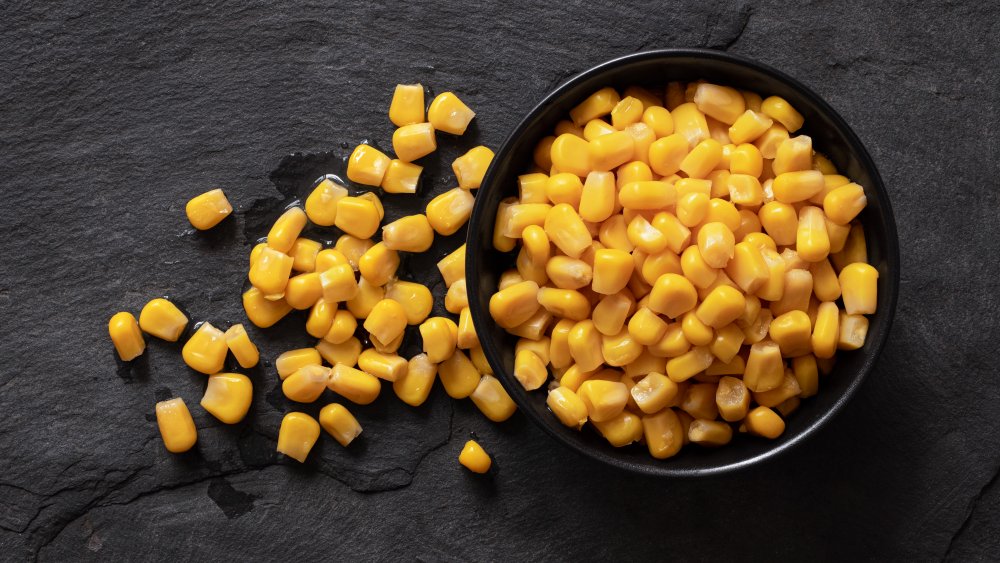This Is Why Supermarkets Are Running Out Of Canned Corn
The year 2020 has been a bit of a wild ride. In many ways, it has been an atypical year for many learning how to navigate the food and supermarket scene. Due to the panic shopping and stockpiling that has occurred due to the COVID-19 pandemic, many grocers have experienced food shortages on items like dried beans, rice, powdered milk products, and water (via NPR). Now added to the long list of panic-purchased grocery items is canned corn.
A Wall Street Journal report explains how canned corn has been flying off the shelves as consumers have begun buying it in excess quantities. With a second wave seemingly imminent, according to CBS News, many have returned to stores with the same vigor they had during the first wave (looking at you, toilet paper). So why do people panic buy? Consumer psychologist Paul Marsden tells CNBC that it is a way consumers feel they are taking control of an uncertain situation. Cue the food shortages.
Why are we running low on canned corn?
The Wall Street Journal explains how COVID-19 has hit the canned corn industry particularly hard in a myriad of ways: from harvesting to supply chain issues to shortages in stores. To understand why canned corn took such a hefty blow, you'd need to understand the process of how the corn gets from the field to your table. The Takeout reports that sweet corn farmers run on a fairly rigid and exacting schedule when it comes to canned corn production every year. The canned corn that we see on store shelves makes up for a particularly small amount of the harvested crop, according to Eat This, Not That. Canned corn is also only harvested once a year, so whatever is gathered at the end of the late summer harvest is what consumers will have until the next harvest is packaged and shipped off.
Eat This, Not That also reports that the amount of farmers who specialize and sell canned corn to companies like Del Monte and Green Giant is small. Due to the first wave of COVID-19, consumers went out and purchased more canned corn than was expected, shocking the infrastructure. Another kink in the chain? Down-sized trucking companies running on a limited force of drivers. Eat This, Not That explains how, in an effort to keep afloat, trucking companies have let go of drivers, which causes there to be less supply transported to answer for all of the increased demand. It looks like this fall and winter, shoppers might have to spruce up their meals with other canned goods.

